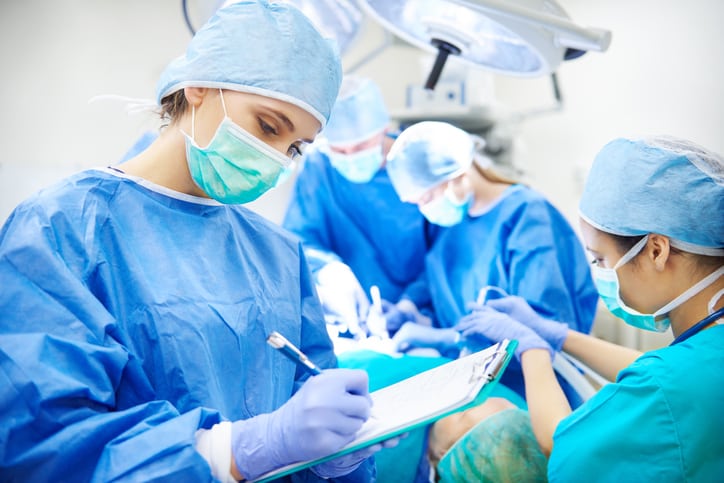<< Back
Backus and Windham Streamline Surgery Preparation

January 15, 2018
When you’re having surgery, it can be a major inconvenience to rush around to different offices and make countless phone calls for the medical and insurance clearance you need.
With that in mind, the teams at Backus and Windham hospitals will soon launch Peri-Operative Surgical Home (PSH), a patient-centered service that will streamline such preparations for patients and help lower the number of surgeries that need to be rescheduled at the last minute when a test or approval is missing.
Starting this month at Windham with total joint replacement or spine patients, the Peri-Operative Surgical Home will centralize the testing needed for a patient to have surgery and store all of the results in a central location.
“It’s one-stop shopping for surgical testing to ensure the patients are ready for surgery for optimal results,” explains Paul Pudimat, MD, chief of anesthesiology at Backus. “It’s done piecemeal now and (what is done) varies from surgeon to surgeon. By utilizing data-driven protocols and a single repository for data, we are making sure we’re optimizing the patient for surgery.”
Depending on the procedure planned, the surgeon and personal health history, a patient having surgery may need lab work, a consultation with an APRN, cardiac testing, a session with a physical therapist, a consult with someone from anesthesiology, or a variety of other of tests or one on one conversations. Historically, this could necessitate several appointments in different offices, which can be inconvenient and time-consuming. The goal of PSH is to have patients come in once and have everything necessary done.
“The administration decided to invest in a higher, more complete level of care for our patients,” Dr. Pudimat says.
Gail Delaney, MS, RN, CNOR, regional director, Surgical Services, said keeping the information in one place means no more tracking down test results in different locations.
“We are often chasing paper the day before a person’s surgery,” she says. “It’s often a great challenge for us.”
Nicole Porter, RN, BSN, nurse manager of Same Day Surgery and Preadmission Testing at Backus, says surgical patients will be called for their PSH appointment, come in for the necessary testing and consults, “and we will hand the doctor back a patient who is totally ready for surgery.”
The initiative – which should be introduced to all Windham surgical patients after the initial trial, and then at Backus in the spring – goes hand in hand with Enhanced Recovery After Surgery (ERAS), a practice introduced with some surgeons in 2017 at Backus to help optimize their patients for surgery.
“There is a lot of data from other locations and programs using ERAS and the unifying theme is connecting with the patient,” Dr. Pudimat says. “We set patient expectations about the peri-op experience which will lead to better outcomes.”
Porter adds that, through ERAS, patients are encouraged to reduce their alcohol use and smoking, learn to use the incentive spirometer they’ll be given after surgery to avoid pneumonia, and improve their eating and exercise habits.
“We want to hand to the doctor the best prepared patient,” she explains. “This way, they are so much more prepared the morning they walk in for surgery.”
This “prehabilitation,” as Dr. Pudimat calls it, also helps decrease patient anxiety going into surgery, notes Corinna Quimby, BS, RN, CNML, nurse manager of Surgical Services at Windham.
“We see how anxious they are the morning of surgery with questions that absolutely could have been answered ahead of time,” Porter agrees. “This way, they’ll set aside a few hours in one day and get it all done.”
After surgery, the same APRN who works with the patients in the PSH will call the patient and check on their condition. This, Porter adds, ensures “a good handoff to the community doctors and loop closure” regarding their surgical experience. That, in turn, should also help prevent readmissions after surgery, which is in the best interest of all patients.